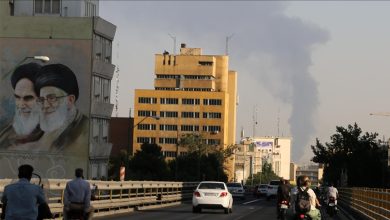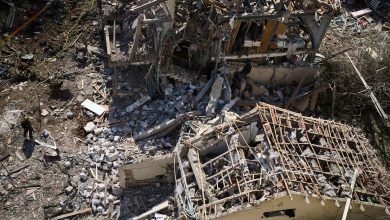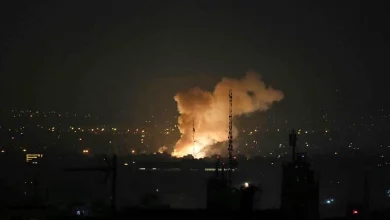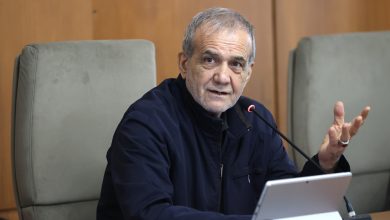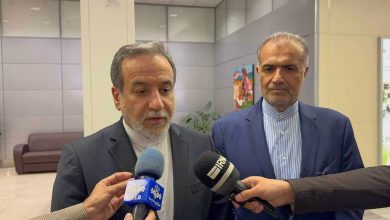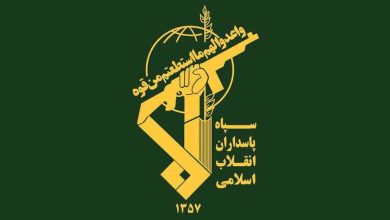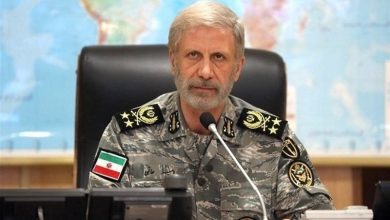“Iran-US Negotiations Enter Critical Stage Amid Heightened Hopes and Cautious Optimism”
In the third round of indirect negotiations on Saturday held in Muscat, representatives from Tehran and Washington entered a more earnest environment, engaging in detailed and technical dialogues concerning nuclear matters.
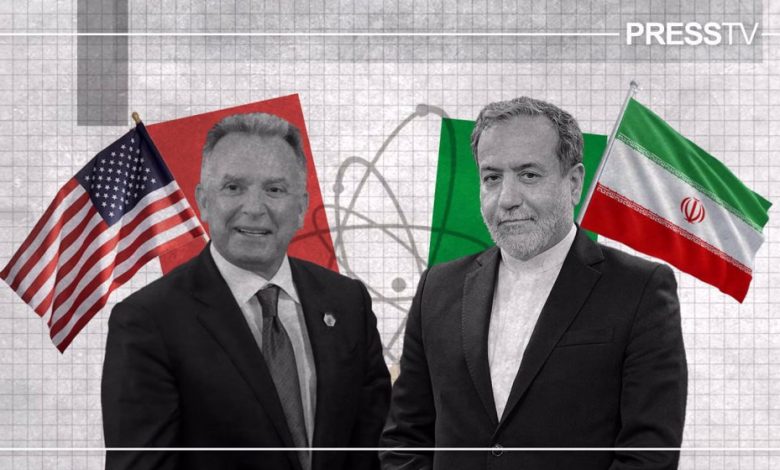
Following two initial rounds of indirect nuclear negotiations that took place in Muscat and Rome, with both parties characterizing them as “constructive,” the most recent discussions have progressed to more intricate and technical aspects.
Iranian Foreign Minister and chief negotiator, Abbas Araghchi, addressed the media following the conclusion of talks on Saturday afternoon, expressing a sentiment of being “hopeful but cautious.”
In a significant shift from previous discussions, the most recent session, which lasted almost five hours and was conducted behind closed doors, included the participation of experts for the first time. This marks a departure from the earlier two rounds, which were predominantly conducted at the senior diplomatic level with Omani mediation.
Araghchi, who heads the Iranian delegation, engaged in discussions with Oman’s Badr Al Busaidi prior to the commencement of the third round of negotiations on Saturday. Both parties focused on matters pertinent to the ongoing talks.
The American delegation was represented by envoy Steve Witkoff, who held discussions in Moscow with Russian President Vladimir Putin on Friday. Following this engagement, Witkoff is scheduled to travel to Oman on Saturday to participate in further discussions.
The third round of high-level indirect negotiations saw Araghchi representing Iran and Witkoff for the United States, accompanied for the first time by technical teams from both parties to offer support.
A high-ranking technical delegation from Iran, led by Deputy Foreign Minister for Political Affairs Majid Takht-Ravanchi and Deputy Foreign Minister for Legal and International Affairs Kazem Gharibabadi, was at the forefront of diplomatic discussions.
Reports from US media indicate that Michael Anton, who leads policy planning at the State Department, has been designated to spearhead the technical discussions from the US side.
Following the conclusion of the discussions, which extended beyond the duration of the previous two rounds, Araghchi conveyed appreciation to the Omani government and Foreign Minister Al Busaidi for their role in facilitating the indirect negotiations within a calm and constructive setting.
Araghchi informed the press that the latest round of negotiations took on a more serious tone compared to previous sessions, with discussions delving into detailed, technical, and specialized areas.
He described the negotiations as taking place in “a completely serious and work-focused environment,” highlighting that the parties had progressed from general discussions to more complex details.
The senior Iranian diplomat highlighted that the current negotiations do not signify that disputes have been settled. “Discrepancies remain on both significant issues and finer details,” he stated.
He emphasized the necessity for “further reviews” by both Tehran and Washington in the upcoming week to explore methods for narrowing their differences before they reconvene for the next round of negotiations.
Araghchi has indicated that the earnestness and resolve displayed by both parties during the third round of discussions have fostered a climate in which the Iranian delegation is “optimistic about making headway” in the negotiations.
Simultaneously, he warned that “there are matters where broad agreements must be established initially, before commencing negotiations over the specifics,” indicating that Tehran’s optimism is still tempered with prudence.
In anticipation of the upcoming phase, Araghchi indicated that the next round is expected to occur on Saturday, May 3. He noted that additional details would be coordinated and released by Oman, who is acting as the mediator.
He further clarified that the fourth round will proceed in the same manner as the third, with experts involved, Witkoff accompanying the U.S. delegation, and Araghchi heading Iran’s delegation.
He stated that as discussions transition from general to more detailed and specialized topics, relevant experts are being incorporated accordingly. This was in response to an inquiry about the composition of Iran’s technical delegation in the third round of negotiations.
During the session, economic specialists joined the expert team for the first time, which proved to be highly beneficial, Araghchi remarked. He further suggested that future sessions should include representatives from the Atomic Energy Organization of Iran to enhance the team’s composition.
The foreign minister has indicated that, as negotiations progress and based on the agenda topics, the necessary experts will be integrated into the Iranian delegation as appropriate.
Addressing speculation regarding the framework and subjects under negotiation, Araghchi affirmed that the Islamic Republic is committed to discussing only matters pertaining to its nuclear program and sanctions relief. He noted that this framework “has been fully respected by both sides” up to this point.
He stated unequivocally that the focus of the discussions is strictly on the nuclear program, with no negotiations extending to other matters. The term “nuclear” refers to building confidence surrounding Iran’s nuclear agenda in exchange for the removal of sanctions.
Araghchi reiterated his previous characterization of the third round of discussions as “serious,” clarifying that this signifies both parties have shown their intent to advance talks.
“Simply possessing the willpower is insufficient to ensure success. Success is realizable only when the perspectives and demands of all parties involved are accommodated, culminating in mutual satisfaction through negotiations. This is undoubtedly a process that requires time,” he emphasized.
The Iranian delegation’s leader expressed optimism about the potential for rapid progress, attributing the smoother and faster negotiation process to “past experiences.”
Araghchi conveyed contentment regarding the progression and speed of the negotiations, stating that they are advancing positively and satisfactorily.
He noted, “The atmosphere is positive and there’s a sense of seriousness from both parties involved. I am confident that the other side also possesses the same determination. Our intent is undoubtedly strong. While hopeful, I approach the situation with cautious optimism.”
The Iranian Foreign Ministry, represented by spokesperson Esmaeil Baqaei, conveyed through a post on X that the delegation from Iran is steadfast in its commitment to safeguarding the “legal and legitimate rights of the Iranian nation to utilize nuclear energy.”
He emphasized that the removal of “illegal sanctions” against Iran continues to be a top priority for the Iranian delegation in these indirect negotiations with the United States.
Oman’s Foreign Minister Badr al-Busaidi announced via a post on X, previously known as Twitter, that discussions between Iran and the United States highlighted a mutual desire to achieve an agreement rooted in mutual respect and long-lasting commitments.
According to al-Busaidi, key principles, objectives, and technical issues have all been addressed, with the diplomat indicating that the next round of high-level discussions is scheduled for May 3 and will continue into next week.
Meanwhile, Trump expressed optimism about reaching a new agreement with the Islamic Republic, aiming to replace the pact established during the Obama administration.
While speaking aboard Air Force One on the way to Rome for Pope Francis’ funeral, Trump conveyed a sense of cautious optimism.
Trump stated that the developments regarding Iran are progressing positively. He revealed that numerous discussions have taken place and expressed optimism about reaching an agreement. He emphasized his preference for a deal over other alternatives, noting that such an outcome would be beneficial for humanity.
Amid escalating tensions and concerns over aggressive rhetoric linked to influence from Israeli lobby groups in Washington, experts have criticized what they view as imprudent discourse.
Iranian officials have pledged to retaliate firmly against any military provocations, emphasizing their unwavering resolve to defend their interests with the same steadfastness that characterizes their diplomatic engagements with the United States.

